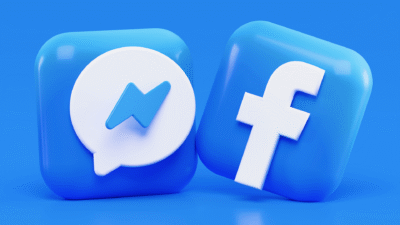Facebook New Name Meta Would Take Us In Metaverse?

Facebook has recently changed its name to Meta. The new name incorporates Facebook’s broader vision and will bring cutting-edge technology that redefines social interaction and connects people together. Some experts believe that Facebook’s development in this direction will bring revolutionary changes to the medical and health field.
As Facebook’s press release said: “The feeling of Metaverse is that it is a fusion of today’s various online social experiences, sometimes extended to three-dimensional space, and sometimes projected into the real world. Even if you are not together, Metaverse will help You share an immersive experience with others so that you can do things that you cannot do in the real world. This is the next step in a series of social technologies and will become a new chapter in our company.”
In fact, Facebook has long been developing in this direction. In the past few years, the company has invested a lot of time and money to embrace new communication methods, especially in the field of virtual reality and augmented reality. Meta represents the culmination of this effort, but it will also be the starting point for more such innovations in the future.
In the past few days, the outside world has begun to discuss how metaverse technology will change social, gaming, and learning, but metaverse will also bring revolutionary changes to another important industry: medical and health.
Broadly speaking, Facebook defines the meta-universe as “a set of interconnected digital spaces that allow you to do things that you can’t do in the real world.” The key is that the meta-universe is characterized by social existence. No matter where you are, you will feel like you are on the spot, with other people. This is very suitable for the medical industry.
Metaverse will open new applications in the fields of telemedicine, virtual medical, remote care and monitoring, and data-driven medical care. In particular, if Metaverse can elevate the virtual medical experience from 2D to 3D, it may trigger a revolution that defines a new generation of medical care.
Other technology giants are also making similar attempts. For example, Microsoft’s Mesh platform is trying to integrate mixed reality, bringing subversion to the medical industry. The backbone of the industry is making billions of dollars in investment to study how augmented reality and virtual reality can better provide personalized medicine, and even completely simulate “physical reality.” This is one of the key constraints facing telemedicine at present.
The meta-universe has greater potential in this regard. The connection brought by the meta-universe is not something a person wants to do, but his entire living environment. If, as imagined, Metaverse becomes a new way for people to interact with friends, a new place where people can work, and a new platform where medical services are available, then it will become a new reality: one that allows people to spend a lot of time. A place to stay.
Facebook has developed smart headsets and the famous Oculus virtual reality platform. These are likely to become indispensable tools like mobile phones or smartwatches.
Just 20 years ago, no one would have thought that they would need to carry a mobile phone or watch 24 hours a day to calculate calorie consumption and heart rate. However, this has become a part of daily life.
Similarly, if Metaverse devices really become an indispensable part of people’s daily experience, they will bring important potential applications in the medical and health field. Possible examples include remote monitoring of patients in need of intensive care, more accurate medical data and analysis results (such as blood glucose monitoring and heart rate tracking), better tracking and measurement of physical health indicators, and more advanced beyond current imagination Applications.
Although Metaverse has great prospects and can greatly help medical practice, how will Metaverse ultimately solve the privacy protection and safety of patients? This is also one of the most important issues in the medical industry. In fact, connections that rely on technology can also cause major loopholes. This raises the question: what measures should be taken to ensure the ethics of the medical industry.
Finally, even if the technology is available, we still need to ask the question: Does the ability to do this mean we should do it? Should we promote the large-scale transformation of the healthcare industry to digital and virtualization? Perhaps this can bring many advantages, but if it is not done properly, it may pose an incredible threat to the relationship between doctors and patients. In the process of embracing new technologies and innovations, the medical industry must not lose its inherent humanity.
Facebook’s management is faced with a difficult task, that is, how to navigate and interpret this exciting and bold new field. The applications of Metaverse are endless, especially in medical and health care and medicine. Time will tell us whether Facebook can make good use of this technology to bring a positive impact on the development of the medical and health industry in a safe, reliable, and patient-centric manner.
Research Snipers is currently covering all technology news including Google, Apple, Android, Xiaomi, Huawei, Samsung News, and More. Research Snipers has decade of experience in breaking technology news, covering latest trends in tech news, and recent developments.











